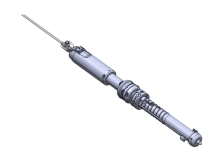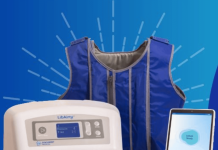Inflammatix Inc. raised $102 million in series D financing to advance development and commercialization of its novel immune response diagnostics portfolio. D1 Capital Partners led the round, with additional funds provided by existing investors Northpond Ventures LLC, Khosla Ventures, Think.Health GmbH, and OSF Healthcare Ventures, among others.

“We are thrilled to welcome D1 Capital Partners to our strong investor syndicate, and look forward to bringing host response diagnostics to market,” said Inflammatix CEO and co-founder Tim Sweeney. “By quickly providing actionable information about disease, Inflammatix expects to equip physicians to make better clinical decisions that benefit both patients and health care systems.”
The priority for the new funding will be bringing Inflammatix’s lead product, Insep, to market. Insep is a host response diagnostic test that quickly identifies whether a patient has an infection and, if so, whether it is viral or bacterial. It also predicts the likely severity of the infection and risk of sepsis. Insep runs on the sample-to-answer, cartridge-based, point-of-care Myrna test system, which will also benefit from the infusion of cash. The company also hopes to further develop its Virabac EZ acute infection test for outpatient clinical settings.
Most tests for infection look for pathogens in the patient’s blood, but many infections remain localized and undetectable this way. Instead of trying to find the pathogen, Insep assesses 29 mRNA biomarkers associated with immune response to acute infection and sepsis. Because the immune system responds immediately to invasion, the test identifies infection much faster than the typical pathogen-by-pathogen approach. Results are produced within 30 minutes using Inflammatix’s Myrna point-of-care device.
Rapid detection and characterization of an infection enables appropriate care as soon as the patient presents. Rather than prescribing antibiotics “just in case” while waiting for test results, physicians can know during an office visit that a patient has a viral infection and spare use of the drugs, reducing the risk of inadvertent development of multi-drug resistant organisms.
Antimicrobial resistance threatens effective treatment of a growing number of pathogens and both the World Health Organization and the U.S. CDC consider resistance one of the most serious public health challenges of our time. More than 2.8 million Americans experience an antibiotic-resistant infection each year and more than 35,000 people in the U.S. die from these difficult to treat infections annually.
Insep also predicts likely severity of the infection and risk of sepsis. Prior to 2020, sepsis killed more than five million people each year and it was a leading cause of death associated with COVID-19. Sepsis accounts for about 20% of all deaths worldwide and one in three in-hospital deaths in the U.S.
Identifying sepsis early, when it can be treated effectively, saves lives. Often, however, sepsis is not diagnosed until it is too late to affect the outcome. “We are working to improve this process so that the wrong patients don’t get sent home, the right patients stay in the hospital, and all patients get optimal care,” Sweeney told BioWorld.
AI-enhanced prediction
Inflammatix combines its biomarker focus with artificial intelligence to enhance the accuracy and predictive ability of its tests. The company “used data from thousands of patients across multiple clinical settings, encompassing a broad range of infection and patient types, in order to develop a robust-enough algorithm for clinical use,” Sweeney explained.
The company’s platform could measure additional targets, Sweeney noted, adding, “we continue to see high interest in combining pathogen identification with host response.” So far, though, Inflammatix has stuck to its initial focus on measuring immune response genes.
The company expects to commercialize Insep and the Myrna system by the end of 2021 in Europe and the following year in the
U.S.




